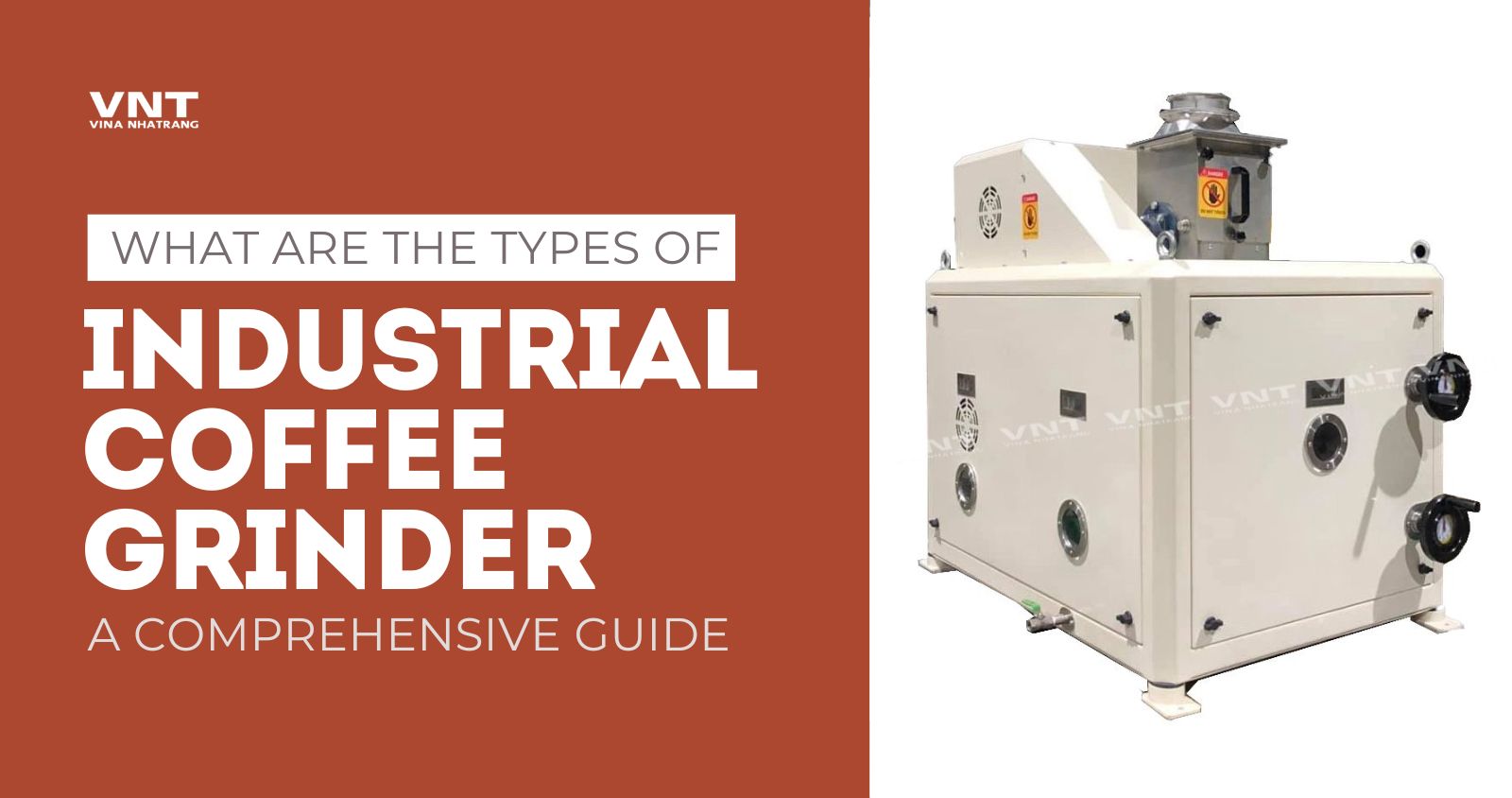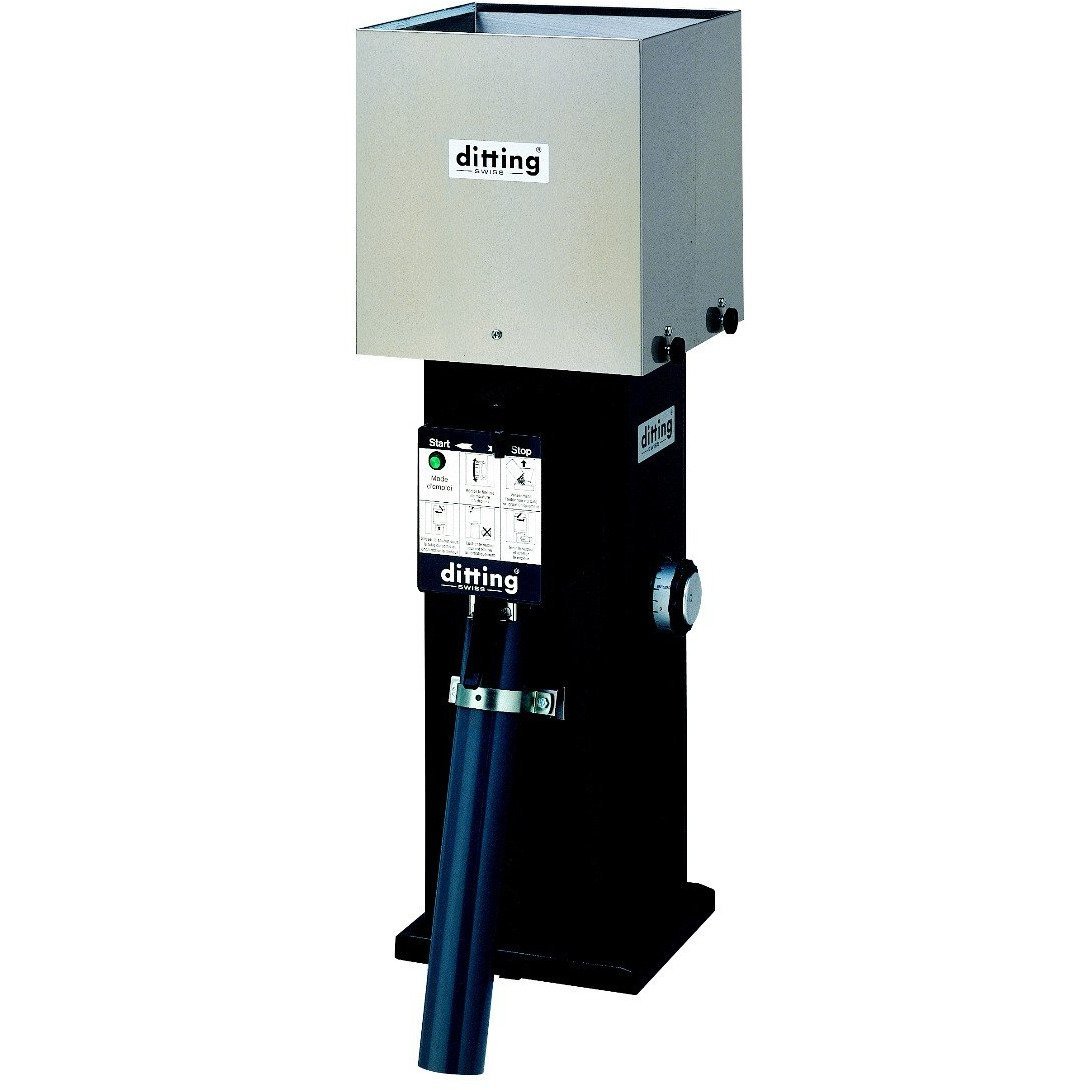A New User's Guide to Industrial Coffee Grinder Models
Wiki Article
Just How to Select the Perfect Industrial Coffee Mill for Your Company
Choosing the ideal commercial coffee grinder for your company is a diverse choice that needs cautious consideration of several important aspects. It is necessary to examine your certain grinding demands, consisting of the quantity of coffee refined and the desired work consistency, as these elements straight impact flavor and customer satisfaction. Additionally, understanding the numerous kinds of mills readily available can dramatically influence your operational effectiveness. As you navigate these considerations, one need to additionally evaluate the ramifications of budget and maintenance. What various other elements could make or damage your choice?Assess Your Grinding Demands
When selecting an industrial coffee grinder, one have to first evaluate their grinding requirements to make sure optimum efficiency and consistency. This preliminary analysis entails comprehending the quantity of coffee to be processed daily, in addition to the preferred work dimension for various developing techniques. A high-capacity mill might be needed for companies serving big amounts of coffee, while smaller sized operations may find a much more small model sufficient.Additionally, it is necessary to take into consideration the kinds of coffee beans being made use of, as various beans might need particular grinding techniques to accomplish the most effective flavor account. For example, oily beans may require a grinder designed to handle such characteristics without clumping or overheating.
One more vital element is the needed grind consistency. Specialty coffee services typically demand accurate grind dimensions to improve removal and flavor, making it vital to pick a mill that can deliver consistent results. Examining the available space and electric needs will certainly aid in selecting a grinder that fits flawlessly into your operational operations. By thoroughly examining these factors, services can make enlightened decisions that straighten with their coffee grinding needs, eventually resulting in a remarkable product and completely satisfied consumers.
Understand Mill Kind
Recognizing the numerous kinds of industrial coffee grinders is essential for making a notified selection that fulfills specific functional needs. There are mostly 2 categories of mills: blade grinders and burr grinders.Blade mills utilize spinning blades to cut the coffee beans, resulting in an inconsistent work dimension - Industrial Coffee Grinder. While they might be a lot more economical, they are frequently not ideal for industrial applications where accuracy is essential
On the other hand, burr mills provide an extra uniform grind by squashing the beans between 2 surfaces. They can be additional categorized into flat burr and cone-shaped burr mills. Apartment burr grinders provide a consistent work dimension and are commonly favored for coffee prep work, while conical burr mills are flexible and can handle a series of mixture techniques, from espresso to French press.
When choosing a grinder, think about the certain requirements of your company, including desired work uniformity, production volume, and the sorts of coffee beverages you prepare to use - Industrial Coffee Grinder. Each grinder type has its restrictions and benefits, so recognizing these nuances makes it possible for educated decision-making that aligns with functional objectives
Evaluate Work Size Consistency
Achieving grind size uniformity is important for producing high-grade coffee, as variants in particle size can significantly affect removal and flavor. When selecting a commercial coffee mill, it is essential to evaluate how well the equipment keeps harmony in work size throughout various sets. Irregular grind dimensions can look what i found result in uneven extraction, leading to a mug that might taste excessively bitter or weak.To analyze grind size uniformity, think about mills with functions such as adjustable grind settings and premium burrs. Burr mills, in specific, stand out in creating consistent fragment dimensions compared to blade mills. The product and form of the burrs play a vital function, with stainless-steel and ceramic choices offering longevity and accuracy.

Think About Production Capability
In the busy world of coffee manufacturing, considering production capacity is vital for services intending to fulfill demand without compromising top quality. The production ability of an industrial coffee mill straight influences a company's capability to fulfill orders successfully, manage stock, and react to changing market trends.When assessing manufacturing capability, it is vital to review the grinder's result rate, typically determined in extra pounds per hour. This measurement needs to line up with your organization's forecasted sales volume and growth targets. For circumstances, a café with a high turnover may call for a grinder that can refine numerous hundred pounds daily, while a smaller sized procedure could suffice with a reduced capacity model.
In addition, think about the kind of coffee being refined. Different beans and blends may affect grinding speed and effectiveness, necessitating a mill efficient in handling varied manufacturing requirements. It's also worth considering the grinder's capacity to preserve regular high quality under high output problems, as any variations can impact the last product.
Inevitably, selecting a mill that matches your organization's production ability will guarantee you stay affordable and responsive to consumer expectations.

Budget Plan and Maintenance Factors
When assessing the right industrial coffee budget, upkeep and mill elements play a substantial role in the general decision-making procedure. A first financial investment in a top notch mill can generate long-term advantages, however it's vital to establish a clear budget plan that lines up with your business's functional needs. Think about both the acquisition cost and potential functional costs, such as power consumption and substitute components.
Maintenance is an additional vital element that can impact your spending plan. Industrial coffee grinders need regular maintenance to make sure optimal performance and long life. Review the producer's suggestions that site for maintenance, consisting of cleaning schedules and parts replacement, as these will influence long-term functional expenses. Additionally, think about the schedule of solution and support, as dependable aid can alleviate downtime and repair costs.

Buying a grinder that is resilient yet simple to keep can save cash in time. While lower-priced options may be alluring, they might incur higher upkeep costs and reduced efficiency. Ultimately, stabilizing first costs with long-lasting maintenance and operational effectiveness will assist you to the very best choice for your organization's coffee grinding requirements.
Conclusion
Picking the perfect industrial coffee mill requires an extensive assessment of grinding demands, grinder kinds, grind size consistency, production ability, and budgetary factors to consider. By prioritizing these variables, organizations can make certain the purchase of a reputable, effective mill that fulfills details read this article operational needs. A well-chosen grinder not just enhances the top quality of the coffee produced but additionally contributes to the general success and productivity of the business. Long-term performance and upkeep convenience must remain main to the decision-making process.Specialized coffee organizations typically demand exact grind sizes to enhance extraction and flavor, making it crucial to select a grinder that can deliver consistent results. Flat burr mills use a consistent work dimension and are generally preferred for coffee prep work, while conical burr grinders are versatile and can take care of a variety of brew methods, from coffee to French press.
When selecting a commercial coffee grinder, it is crucial to evaluate exactly how well the device keeps harmony in grind dimension across various batches. Burr mills, in specific, stand out in creating uniform fragment sizes contrasted to blade mills.Choosing the suitable industrial coffee grinder requires a complete evaluation of grinding needs, grinder types, grind dimension uniformity, manufacturing ability, and monetary considerations.
Report this wiki page